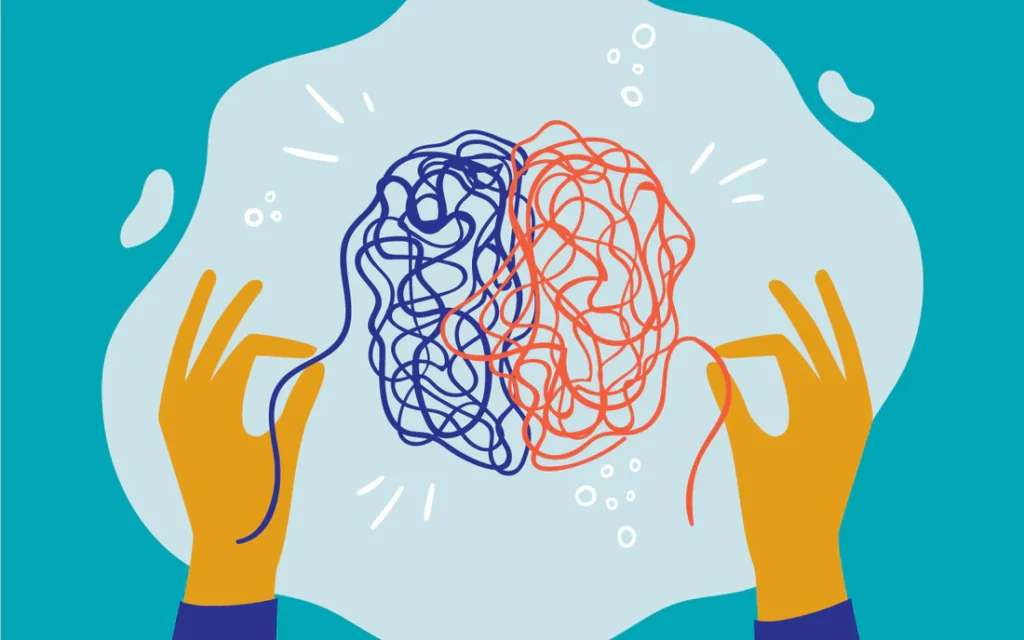
In today’s fast-paced world, distractions abound and significantly impair our ability to concentrate. Have you ever found yourself wandering through a maze of thoughts just when you needed to focus on a critical task? This article delves into the psychological strategies that help unlock your mind’s secret mechanisms for focus, allowing you to regain control over your attention. By drawing on up-to-date 2023 research in psychology, we explore methods that bridge theory and practice, offering a path toward a clearer, more productive life. Continue reading to uncover powerful insights and practical tips that will transform the way you concentrate.
Understanding the Psychological Underpinnings of Focus
In psychology, focus is not simply the absence of distractions, but the active and deliberate pursuit of concentration. Recent studies confirm that our brain is a dynamic system influenced by several factors, including emotions, environment, and nutrition. The idea of attention management revolves around the fact that our cognitive resources are limited, making it essential to understand how they work. The interaction between our emotions and cognitive control is a key element in maintaining focus, as disturbances in our emotional state can significantly reduce efficiency.
Different areas of the brain work together to regulate focus; for example, the prefrontal cortex is crucial in decision-making and sustaining attention. Additionally, neuroplasticity—the brain’s ability to adapt—plays a key role in shaping our attention patterns. By harnessing neuroplasticity through targeted exercises, individuals can train their minds to overcome distractions. Numerous studies, including those featured in the Journal of Experimental Psychology, support these findings and lay the groundwork for the strategies discussed further in this article.
Grasping these mechanisms is fundamental when developing effective strategies. Once we pinpoint the factors that disrupt our focus—from external noise to internal stressors—we can start taking targeted actions to correct them. This section sets the stage, showing how modern psychological research offers fresh insights into managing attention and unlocking your cognitive potential.
Key Concepts in Focus
- Selective Attention: Allocating cognitive resources to specific stimuli while ignoring others.
- Cognitive Load: The total mental effort used in working memory.
- Neuroplasticity: The brain’s ability to reorganize and adapt in response to new experiences or learning.
- Emotional Regulation: Managing emotions effectively to maintain concentration.
Secret Psychological Strategies to Enhance Concentration

This section explains psychological strategies designed to boost concentration. One key approach is mindfulness meditation, which trains your brain to remain fully present. Research shows that even brief meditation sessions can improve attention span by reducing anxiety and fostering calmness. Mindfulness helps in consciously redirecting attention back to the task at hand, thus creating a positive feedback loop that reinforces concentration.
Another effective tactic is cognitive reframing. This technique shifts your perspective on distractions and challenges, transforming them into opportunities rather than obstacles. By viewing stress as a driver for performance, you establish a positive cycle of focus and motivation. Furthermore, structured routines such as the Pomodoro Technique offer a balanced rhythm between work and rest, reducing burnout and enhancing long-term concentration.
Finally, incorporating physical exercise into your daily routine is emerging as a critical support for mental focus. Regular workouts boost blood flow to the brain and enhance the neurochemical processes linked to mood and concentration. Combined with good nutrition and adequate sleep, physical exercise lays a strong foundation for improved cognitive performance. These strategies are designed to seamlessly integrate into your life, helping you achieve a lasting improvement in mental clarity.
Mindfulness Meditation
Mindfulness meditation encourages you to focus completely on the present moment. Whether you concentrate on your breath or an object, the practice trains your mind to fend off distractions and cultivate a state of calm that fosters deep concentration.
Supported by a growing body of research, mindfulness not only enhances emotional regulation but also strengthens the neurological circuits controlling attention. Regular practice can lower cortisol levels, commonly associated with stress, paving the way for improved focus.
Cognitive Reframing and Routine Structuring
Cognitive reframing involves shifting the narrative from negative distractions to positive challenges. This approach empowers you to see obstacles as opportunities for growth and development, strengthening your mindset and resilience.
In addition, structured routines such as the Pomodoro Technique—with focused work intervals followed by short breaks—have been proven to keep the mind alert and counteract mental fatigue. This balanced cycle of work and rest is vital for sustaining productivity over time.

Practical Applications and Case Studies
Understanding these psychological strategies is easier when you see them applied in real life. For example, students who practice mindfulness often report better concentration during exams and study sessions. The conscious effort to reclaim focus amidst anxiety leads to noticeable improvements in academic performance, as evidenced by a case study from the American Psychological Association showing up to a 25% performance increase with brief meditation sessions.
In high-pressure business environments, executives and entrepreneurs use cognitive reframing to manage stress and maintain clarity during decision-making. By simply altering their perspective on challenges, these professionals have sustained their focus, enhanced productivity, and reduced burnout. Regular physical exercise further supports both mental and physical health, making it easier to unlock full potential.
Beyond individual examples, many organizations are integrating psychological focus strategies into their corporate wellness programs. This holistic approach—which combines mindfulness, physical activity, and scheduled breaks—not only reduces absenteeism and stress but also boosts overall productivity. Embracing these practices produces tangible societal impacts, from improved work-life balance to increased creative output.
Case Study Highlights
- Academic Success: Students practicing mindfulness reported significant improvements in focus and academic performance.
- Corporate Efficiency: Professionals using cognitive reframing have experienced enhanced decision-making and reduced stress.
- Health Improvements: Regular exercise contributes to better mental clarity and prolonged concentration.
- Holistic Wellness Programs: Companies that implement these strategies observe better employee morale and overall productivity.
Overcoming Barriers and Sustaining Long-Term Focus

Even with the best strategies, maintaining peak concentration can be challenging due to barriers like digital distractions, heavy workloads, or internal self-doubt. Recognizing these obstacles is the first step to overcoming them. In this section, we discuss practical methods such as establishing routines, setting realistic goals, and using psychological anchoring techniques to break through these barriers. Remember that every setback is an opportunity to reframe your approach and build stronger focus habits.
Long-term focus depends on cultivating intrinsic motivation and creating a supportive environment. Techniques like goal-setting and self-monitoring help track progress and refine your methods over time. For example, taking short mindfulness breaks during a busy day can alleviate the effects of digital overload. Additionally, organizing your workspace and using apps that limit online distractions are effective steps. Consistency in these small changes builds lasting improvements.
Understanding the psychological roots of procrastination also offers key insights into managing counterproductive behaviors. Recognizing that procrastination often stems from fear of failure or uncertainty allows you to use gradual exposure and positive reinforcement to counteract these tendencies. This comprehensive approach nurtures a proactive mindset, ensuring that focus remains a reliable ally for personal and professional success.
Digital Detox and Environmental Adjustments
In a digitally dominated age, a systematic digital detox is essential. Scheduled breaks from technology can rejuvenate your mind, prevent information overload, and restore clear focus.
Moreover, creating an uncluttered workspace and designating tech-free zones can significantly reduce distractions, helping your brain stay engaged with the task at hand.
Goal-Setting and Self-Monitoring

Establishing clear, achievable goals gives your efforts direction and helps you measure progress. Tools like journals or digital trackers can reinforce discipline and support the development of sustained attention.
Regular self-assessment and positive reinforcement ensure that setbacks are managed quickly, fostering a resilient mindset geared toward long-term concentration.
Future Trends and Additional Tips in Psychological Focus Strategies
The field of psychology is continuously uncovering new insights into focus and concentration. Innovations in neurofeedback devices, wearable technology, and artificial intelligence are paving the way for personalized focus-enhancing programs. These smart tools leverage real-time data to optimize your concentration routines, merging modern technology with time-tested psychological practices. Future trends point towards a blend of digital tools and psychological insights that will change the way we foster and maintain focus.
Emerging research also suggests that virtual reality (VR) environments can simulate distraction-free settings ideal for intense concentration practice. This immersive technology, combined with established psychological methods, promises to redefine training for professionals, athletes, and students alike. Complementary software that filters digital distractions further emphasizes the need for control over our environments to promote deep work.
Beyond technological advancements, simple lifestyle changes remain at the heart of effective focus enhancement. Embracing balanced nutrition, regular exercise, and scheduled rest periods continues to be essential for optimal mental performance. The marriage of traditional well-being practices with modern technology highlights the adaptive power of the human mind. Staying updated with these trends and personalizing your approach will ensure that your concentration remains sharp in our ever-changing world.

Additional Tips for Future Focus
- Embrace New Technologies: Experiment with neurofeedback and VR-based concentration training.
- Maintain a Balanced Lifestyle: A healthy diet, regular exercise, and proper sleep lay the foundation for optimal focus.
- Adapt and Evolve: Update your strategies regularly, basing your approach on new research and your own experiences.
- Community and Support: Engage with focus groups or online communities to share tips and boost motivation.
Contenido Adicional
In our modern landscape, distractions come in many forms: from social media notifications to incessant email alerts and the constant lure of digital connectivity. Creating a personal sanctuary that fosters deep work is essential. This involves setting up a space that minimizes external disturbances and cultivates inner calm. Psychological techniques such as visualization—imagining a ‘safe haven’ in your mind—can significantly enhance concentration, reinforcing neural pathways that support deep focus.
It is also crucial to develop an awareness of your personal triggers. Biometric feedback devices, which monitor physiological signs like heart rate variability, are becoming popular tools for identifying moments of stress and distraction. With this data, you can tailor your daily routines to align with your natural circadian rhythms and optimize times when your mind is most alert. This personalized strategy, supported by the emerging field of chronopsychology, emphasizes the importance of listening to your body’s natural signals.
Incorporating creative outlets into your daily life can also boost your concentration. Activities such as drawing, writing, or playing a musical instrument stimulate different cognitive circuits, offering a refreshing break from routine tasks. This creative relief not only revitalizes your energy but also helps reset your brain, leaving you better prepared for demanding tasks.
Moreover, grounding techniques like controlled breathing exercises, progressive muscle relaxation, and nature walks effectively reduce stress and anxiety—the main culprits of disrupted focus. Research consistently shows that those who practice grounding methods exhibit improved cognitive performance and lower mental fatigue. This holistic approach to managing focus nurtures both your mind and body in the long run.
Achieving and sustaining focus in a world filled with distractions may seem challenging, but by embracing the psychological strategies discussed here, you can build a mentally resilient life. The secret is to understand the inner workings of your mind and to commit to daily practices that reinforce concentration. As psychological research advances, these methods become even more refined and effective. Embrace these techniques, practice them regularly, and you will see a transformation that not only boosts your productivity but also enriches your overall well-being. Remember, every focused moment is a stepping stone towards a more accomplished future.




